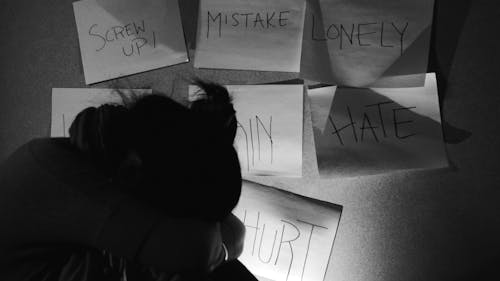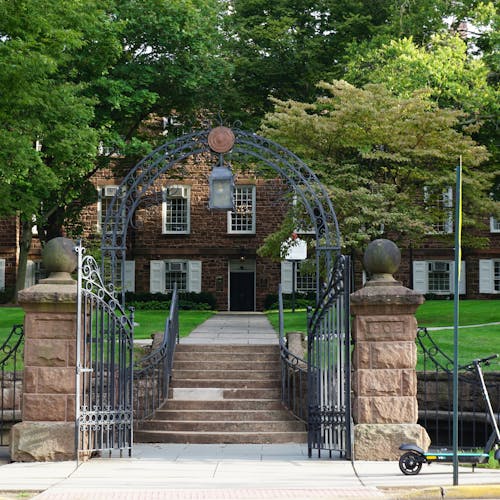How do Rutgers students deal with depression?

At Rutgers, students juggling commitments or adjusting to a new lifestyle often find themselves overworked and overstressed. For some, their worries develop into depression.
Depression is “at least ... depressed mood or loss of interest or pleasure," according to the fifth edition of the Diagnostic Statistical Manual of Mental Disorders.
College students are especially prone to this whirlwind of emotions.
Anxiety and depression, in that order, are the most common diagnoses among college students, according to the Center for Collegiate Mental Health at Pennsylvania State University.
But there are multiple factors that can contribute to the development of depression.
Late adolescence and early adulthood involve several developmental issues that can cause stress to a college student, said Stephen Kilianski, a professor in the Department of Psychology.
He cited multiple reasons for depression in college students, including career decisions, independence from family and separation from familiar community settings, previous romantic attachments, extracurricular activities or religious practices.
“Erik Erikson believed this stage (the quest for enduring adult identity) was a period of great ambivalence, inner (and sometimes outward) conflict, a true struggle but a fully necessary one,” Kilianski said. “Small wonder, then, that depression often emerges and is first diagnosed at this age.”
Fifty percent of all people with mental illness have symptoms emerge at age 14, according to studies from the Mental Health Association of East Tennessee. If left untreated, the illnesses can have serious consequences.
The National Institute for Mental Health reports that 90 percent of people who die by suicide have depression or other mental disorders.
Depression or negative emotions emerge from not being able to find an outlet for those feelings, said Cassandra Callahan, a School of Environmental and Biological Sciences junior.
“(My friends and I) are pretty good about making sure that if we’re starting to feel stressed out, we’ll just take a break and go and get food or hang out somewhere,” Callahan said.
The University’s vast expanse of clubs offer a niche for students to take breaks from their stressors, Callahan said.
“Sometimes it's simply a matter of not having a moment to catch up with yourself and ask yourself how you're doing," said Michael Anderson, a School of Arts and Sciences senior.
Anderson is the host and member of the weekly poetry collective "Verbal Mayhem," which he feels is a healthy way to vent emotions and “get out a lot of the weekly stress that collects and clogs up the mind.”
The most effective treatment for young adults is a combination of anti-depressant medication and cognitive behavioral therapy (CBT), Kilianski said.
“CBT endeavors to eliminate maladaptive, unrealistically negative thinking patterns in which the depressed person is trapped,” he said.
Many college students are already familiar with these forms of treatment.
Half of clients at Pennsylvania State University's mental health centers already had some form of counseling before college and one-third have taken psychiatric medication, said Ben Locke, associate director of Clinical Services at Penn State.
The University offers its Counseling, Alcohol and Other Drug Assistance Program & Psychiatric Services (CAPS). Services include counseling, medication management and group psychotherapy.
But CAPS is not the only means of getting help. Anderson said the cultural centers, social justice centers and Violence Prevention and Victim Assistance (VPVA) are all places where individuals can seek help.
“If I was in an intense situation, I know I would have go-to staff members that would sit and listen to me,” Anderson said.
Despite this, the University has more work to do to expand its mental health services.
Briana Lombard, a School of Arts and Sciences junior, explained the details of the CAPS program. If a student’s situation is too serious and CAPS deems counseling cannot help them, the student is referred to Early Intervention Support Services.
“The thing is, there’s only a limited number of workshops that are there to help you, and a lot of them don’t focus on more serious aspects of mental illness, for example psychosis, delusions, mania, things of that nature,” Lombard said. “So students with more serious mental illness have to be outsourced from the college and have to get help elsewhere."
Lombard said there is no support for people with serious mental illnesses at Rutgers.
Lombard is a member of the Rutgers University Student Assembly's mental health board, hoping to bring these concerns up with the University and de-stigmatize mental illness.
Removing the stigma from mental illness is also another means of having more students speak up about their emotions.
“We generally don’t let having a medical illness define a person’s identity, yet we are very cautious about revealing mental illness because it will somehow define a person’s competence or even suggest dangerousness," said Thomas Insel, director of the National Institute of Mental Health (NIMH).
Kilianski said students should not allow the problems to fester without help.
"Avoid the temptation to use alcohol, drugs, sex, gambling or any other thing to make you feel better," he said.



